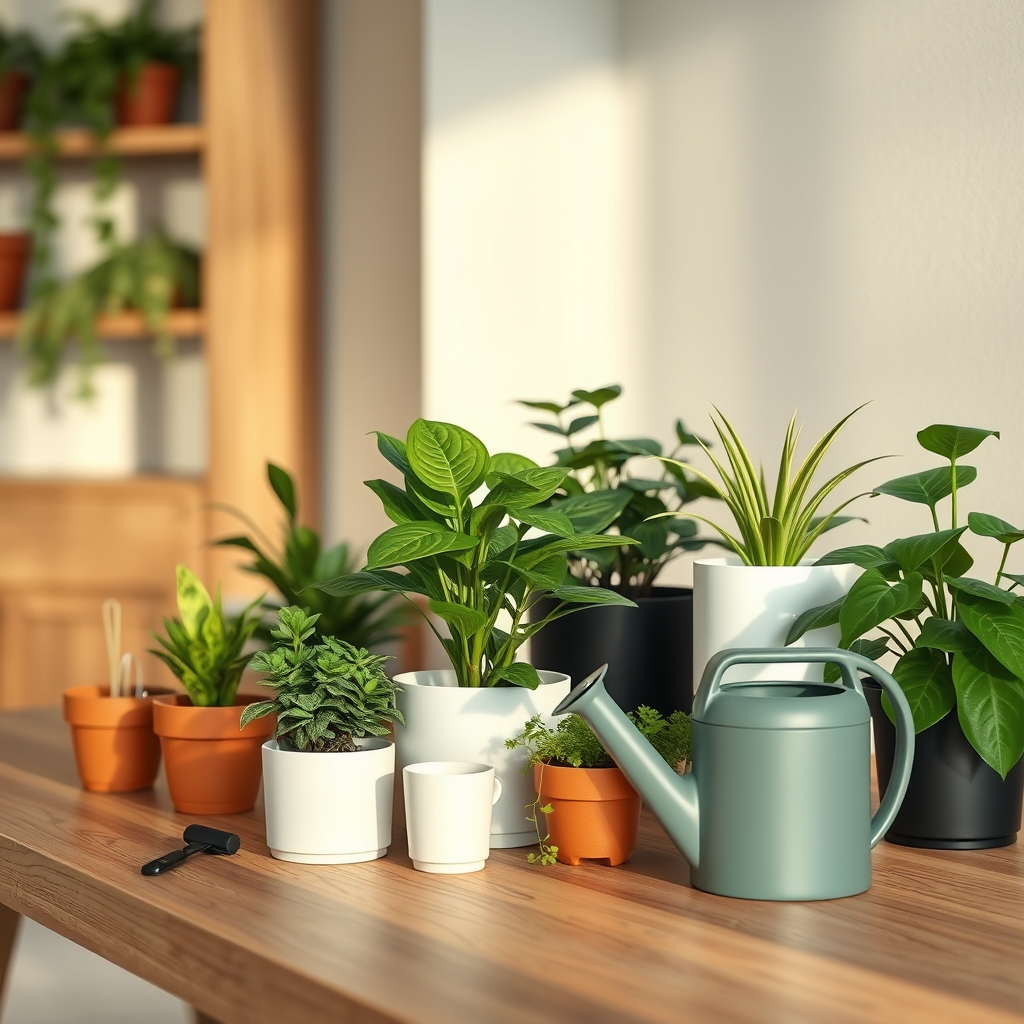Plants Information API vs House Plants Database API: Which One Fits Your Gardening Needs?

Plants Information API and the House Plants Database API. Both APIs provide valuable data for plant enthusiasts, but they serve different purposes and offer unique features. In this blog post, we will compare these two APIs in detail, examining their capabilities, use cases, performance, and more to help you determine which one fits your gardening needs best.
Overview of Both APIs
Plants Information API is designed to provide comprehensive information about various plants. By inputting the name of a plant, users can retrieve detailed data, including its scientific name, care instructions, ideal climate, and potential toxicity. This API is particularly useful for gardeners, landscapers, and educators who require accurate plant information for care and identification.
House Plants Database API focuses specifically on house plants, offering a list of different species along with care information and images. This API is ideal for plant lovers looking to create platforms that advise users on house plant care, making it a valuable resource for blogs and applications dedicated to indoor gardening.
Feature Comparison
Plants Information API Features
Plants Information API is its ability to provide detailed plant data. To utilize this feature, users must specify the name of the plant in their request. The API then returns a wealth of information, including:
- Scientific Name: This field provides the official name of the plant, allowing for accurate identification.
- Family: The botanical family to which the plant belongs, grouping it with similar species.
- Morphology: A description of the plant's physical characteristics, such as size, shape, and flower type.
- Care: Practical recommendations for plant care, including light, watering, and soil conditions.
- Ideal Climate: Information on the climate conditions in which the plant thrives.
- Toxicity: A note on whether the plant poses any risk to humans or animals.
["Scientific name: Helianthus annuus\nFamily: Asteraceae\nMorphology: Tall, annual flowering plant with large, yellow, daisy-like flowers and rough, hairy stems.\nCare: Plant in full sun in well-draining soil and water regularly. Provide support for tall stems if needed.\nIdeal climate: Thrives in warm climates with plenty of sunlight.\nToxicity: Non-toxic to humans and animals."]
House Plants Database API Features
House Plants Database API offers several features that cater specifically to house plant enthusiasts. One of its primary capabilities is the Search feature, which allows users to retrieve a list of plants based on their search criteria. This feature is beneficial for users looking to explore various house plants and their care requirements.
[{"Categories":"Dracaena","Disease":"N/A","Use":["Potted plant","Secondary"],"Latin name":"Dracaena deremensis 'Janet Craig'","Insects":["Mealy bug","Scale"],"Avaibility":"Regular","url":"http://www.tropicopia.com/house-plant/detail.np/detail-121.html","Style":"Bush","Bearing":"Erect","Light tolered":"Diffuse light ( Less than 5,300 lux / 500 fc)","Height at purchase":{"m":0.91,"cm":91},"Light ideal":"Strong light ( 21,500 to 3,200 lux/2000 to 300 fc)","Width at purchase":{"m":0.91,"cm":91},"id":"53417c12-4824-5995-bce0-b81984ebbd1d","Appeal":"Robustness","img":"http://www.tropicopia.com/house-plant/thumbnails/5556.jpg","Growth":"Regular","Width potential":{"m":1.22,"cm":122},"Common name (fr.)":"Janet Craig","Pruning":"If needed","Family":"Liliaceae","Height potential":{"m":3.66,"cm":366},"Origin":["Cultivar"],"Description":null,"Temperature max":{"F":86,"C":30},"Blooming season":"Winter / Spring","Color of leaf":["Dark green"],"Watering":"Keep moist between watering & ...
Get Plant By ID capability. This allows users to retrieve detailed information about a specific plant by providing its unique ID. For example:
{"Categories":"Anthurium","Disease":"Erwinia & Crown rot","Img":"http://www.tropicopia.com/house-plant/thumbnails/5491.jpg","Use":["Flower","Table top","Tertiary"],"Latin name":"Anthurium X","Insects":["Spider mite","Mealy bug","Aphid"],"Avaibility":"Regular","Style":null,"Bearing":"Clump","Light tolered":"Diffuse light ( Less than 5,300 lux / 500 fc)","Height at purchase":{"M":0.25,"CM":25},"Light ideal":"Strong light ( 21,500 to 3,200 lux/2000 to 300 fc)","Width at purchase":{"M":0.3,"CM":30},"id":"215b33f4-66d2-5601-b776-4501f2bd50b7","Appeal":"Flower","Perfume":null,"Growth":"Regular","Width potential":{"M":0.61,"CM":61},"Common name (fr.)":"Flamant rose, Langue de feu","Pruning":"Never","Family":"Araceae","Height potential":{"M":0.61,"CM":61},"Origin":["Cultivar"],"Description":null,"Temperature max":{"F":71.6,"C":22},"Blooming season":"All year","Url":"http://www.tropicopia.com/house-plant/detail.np/detail-56.html","Color of leaf":["Medium green","Dark green"],"Watering":"Water w...
Performance and Scalability Analysis
Plants Information API is designed to provide quick responses for individual plant queries, making it suitable for applications that require real-time data retrieval. Its structured response format allows developers to easily parse and utilize the data in their applications.
House Plants Database API is optimized for handling multiple requests efficiently. Its ability to return lists of plants based on search criteria means that it can serve a wide range of queries without significant delays. This scalability is particularly beneficial for applications that need to display a large number of house plants and their care information simultaneously.
Pros and Cons of Each API
Plants Information API
- Pros:
- Comprehensive plant data including care, climate, and toxicity information.
- Standardized fields for easy integration and data parsing.
- Ideal for educational and research purposes.
- Cons:
- Limited to detailed information about individual plants, which may not cover broader categories.
- Less focus on house plants specifically.
House Plants Database API
- Pros:
- Extensive database of house plants with images and care instructions.
- Multiple search options including by name, ID, and category.
- Great for applications focused on indoor gardening.
- Cons:
- Less detailed information about individual plants compared to the Plants Information API.
- Focuses primarily on house plants, which may not suit all gardening needs.
Final Recommendation
Plants Information API and the House Plants Database API ultimately depends on your specific gardening needs. If you require detailed information about a wide variety of plants, including care instructions and climate adaptability, the Plants Information API is the better choice. It is particularly suited for educational purposes and research where comprehensive data is essential.
Plants Information API? View the integration guide for step-by-step instructions.
House Plants Database API integration? Read our technical guides for implementation tips.





